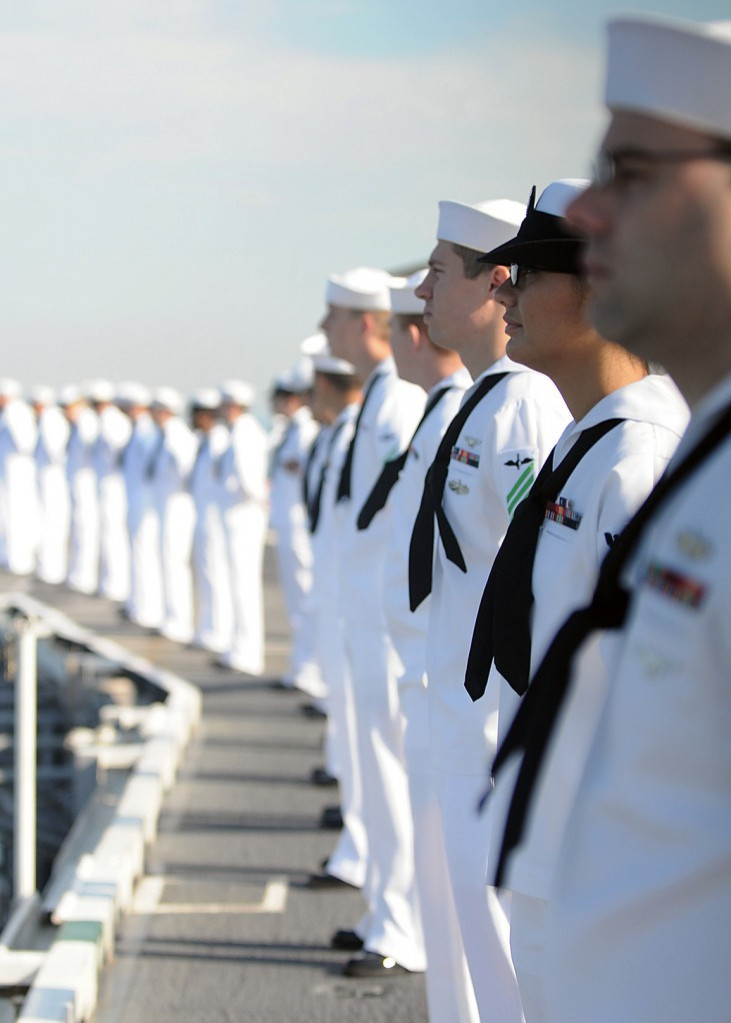Navy Breathalyzer Tests: Who Will Be Targeted, and Why?

Navy and the Marine Corps personnel will soon be expected to undergo more frequent Breathalyzer tests when they report for duty, following a Monday announcement.
The Navy has used Breathalyzers sporadically in the past, but this year the alcohol-detecting equipment will be installed on virtually every ship in the fleet. The Marine Corps will begin testing on a smaller scale in April.
Details have not yet been finalized, but early reports suggest that only those personnel with the most vital duties will be subject to the breathalyzer upon reporting for duty. There may also be some instances of random testing.
Officials emphasize that this is not meant to be a punishment, and breathalyzer test results will not be legally admissible. The measure is part of a broader program called the 21st Century Sailor and Marine initiative, which is described on the U.S. Navy's official blog as a set of objectives and policies, new and existing, to maximize each Sailor's and Marine's personal readiness.
The initiative was partly motivated by a new U.S. defense strategy, unveiled by President Obama earlier this year. Our military will be leaner, he said during a speech at the Pentagon on January. But the world must know: the United States is going to maintain our military superiority with armed forces that are agile, flexible and ready for the full range of contingencies and threats.
Addressing Navy personnel and Marines from onboard the USS Bataan on Monday, Secretary of the Navy Ray Mabus explained that the new defense strategy will put increased responsibilities on the Navy and Marine Corps in the years to come. You are the department's most essential asset, and it is the duty of the department's leadership to do all we can do to provide each individual sailor and Marine with the resources to maintain that resiliency.
Alcohol abuse is a prevalent concern in the military, and the problem has been exacerbated by a decade of war. The ongoing operations in Iraq and Afghanistan continue to strain military personnel, returning veterans, and their families, reports the National Institute on Drug Abuse. Some have experienced long and multiple deployments, combat exposure, and physical injuries, as well as post-traumatic stress disorder and traumatic brain injury. A screening of soldiers returning from Iraq recently showed that 27 percent met criteria for alcohol abuse.
By screening Navy and Marine personnel, the military hope to cut down on cases of alcohol-related health problems and accidents.
Breathalyzer tests are just one of many ways the Navy and Marine Corps will be monitoring the health of their service men and women. Military Times reports that here will also be reliable synthetic marijuana testing, enhanced anti-sexual-assault training, greater emphasis on fitness and nutrition, increased on-base prices of tobacco products and the ability to temporarily leave the service, without penalty, to raise children.
A few of the sailors present for Mabus's announcement on the Bataan offered positive feedback. I thought the new initiatives really show how far the Navy has come, said Logistics Specialist 2nd Class Jessica Vestal. We, as sailors, need all the support we can get, and I feel like I heard a lot today that will have a real deckplate impact.
© Copyright IBTimes 2025. All rights reserved.






















